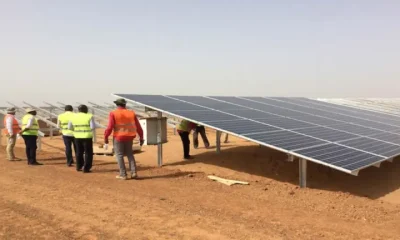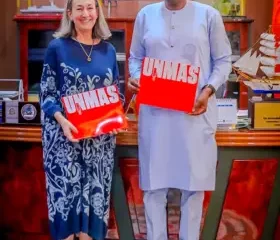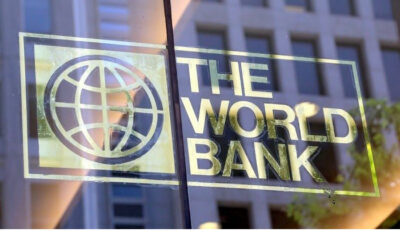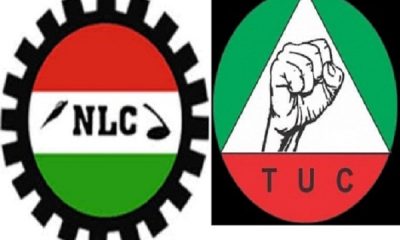Headline
Nigerian Govt in talks with World Bank for new $1.5 Billion loan
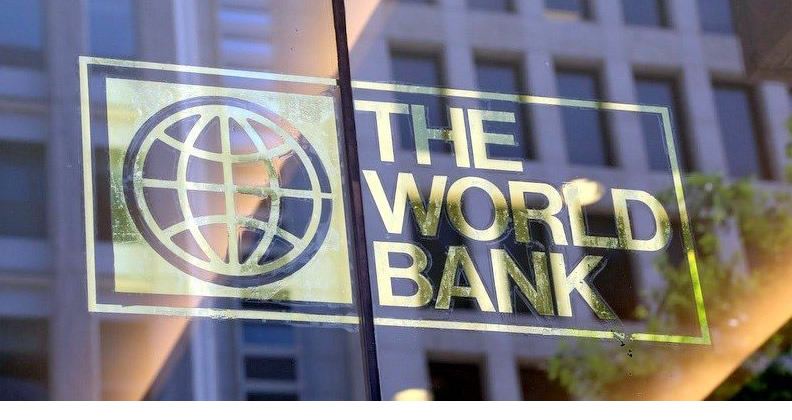
The Federal Government is currently engaging the World Bank on a fresh $1.5bn loan.
Abbreviated as HOPE, the loan is titled ‘Nigeria Human Capital for Opportunities and Empowerment’ based on information obtained from the website of the Washington-based institution.
The objective of the loan is “to strengthen systems for improved delivery of basic education and primary health services in participating states.”
The loan is meant to be implemented in 2024 pending approval by the board of the World Bank Group.
Sunday PUNCH also discovered that there was another loan titled: ‘Nigeria Macro-Fiscal Reforms for Economic Stability and Economic Transformation’.
However, the amount for this other loan was not disclosed as of the time of filing this report.
There were also pending discussions on five other loan projects, according to findings.
These include $300m for solutions for internally displaced persons and host communities’ project, $500m for rural access and agricultural marketing project-scale up, $750m for the Nigeria distributed access through renewable energy scale-up project, $700m for sustainable power and irrigation for Nigeria project, and $500m for NG accelerating resource mobilisation for reforms PforR.
The discussions will determine if the loans will become active or dropped.
So far, Nigeria has secured a total of $1.95bn in loans from the World Bank in the first four months of President Bola Tinubu’s administration.
The first was the $750m approved on June 9, 2023 to boost Nigeria’s power sector.
The second was $500m to help the country’s drive for women’s empowerment and was approved on June 22, 2023.
The third was a $700m loan to enhance adolescent girls’ learning and empowerment, and was approved on September 21, 2023.
The International Bank for Reconstruction and Development and the International Development Association, which make up the World Bank, have, over the years, advanced loans to Nigeria.
The IBRD lends to governments of middle-income and creditworthy low-income countries, while the IDA provides concessionary loans – called credits – and grants to governments of the poorest countries.
The World Bank is Nigeria’s biggest multilateral creditor, with the country owing about $14.51bn as of June 30, 2023.
Further breakdown showed that Nigeria has $14.51bn IDA debt and $485.75m IBRD debt by the second quarter of the year.
The Debt Management Office recently said Nigeria’s total public debt hit N87.38tn at the end of the second quarter.
The figure represents an increase of 75.29 per cent or N37.53tn compared to N49.85tn recorded at the end of March 2023.
Further breakdown shows that Nigeria has a total domestic debt of N54.13tn and total external debt of N33.25tn.
While the domestic debt makes up 61.95 per cent of the total debt, the external makes up 38.05 per cent.
There has been a significant increase in both domestic and external debts within three months.
The domestic debt rose by 79.18 per cent from N30.21tn, while the external debt rose by 69.28 per cent from N19.64tn in the first quarter of 2023.
In its 2022 Debt Sustainability Analysis Report, the DMO warned that the Federal Government’s projected revenue of N10tn for 2023 could not support fresh borrowings.
According to the office, the projected government’s debt service-to-revenue ratio of 73.5 per cent for this year is high and a threat to debt sustainability.
It noted that the government’s current revenue profile could not support higher levels of borrowing.
In a report titled, ‘Report of the Annual National Market Access Country Debt Sustainability Analysis,’ the debt office said, “The projected FGN debt service-to-revenue ratio at 73.5 per cent for 2023 is high and a threat to debt sustainability.
“It means that the revenue profile cannot support higher levels of borrowing. Attaining a sustainable FGN debt service-to-revenue ratio would require an increase of FGN revenue from N10.49tn projected in the 2023 budget to about N15.5tn.”
The DMO stated that the government must pay attention to revenue generation by implementing far-reaching revenue mobilisation initiatives and reforms, including the Strategic Revenue Growth Initiatives and all the pillars with a view to raising the country’s tax revenue to Gross Domestic Product ratio from about seven per cent to those of its peers.
The Federal Government will be unable to borrow a lot as it nears its self-imposed debt limit of 40 per cent, according to the DMO.
To reduce borrowing and budget deficit, the DMO stated that the government should encourage the private sector to fund some of the capital projects that were being financed from borrowing through public-private partnership schemes.
It added that the Federal Government could reduce borrowing through the privatisation and/or sale of its assets.
‘Borrowing plan stays’
Despite the rising debt, the Federal Government has insisted that it will stick to its borrowing plan.
Over the years, Nigeria’s low revenue generation has pushed the government to borrow more borrowing.
However, President Tinubu recently expressed his administration’s commitment to breaking the cycle of overreliance on borrowing for public spending and the resultant burden of debt servicing it places on the management of limited government revenues.
Tinubu recently said the country could not continue to service its debt with 90 per cent of its revenue.
He noted that the country was headed for destruction if that continued.
The President said, “Can we continue to service external debts with 90 per cent of our revenue? It is a path to destruction. It is not sustainable. We must make the very difficult changes that are necessary for our country to get (wake) up from slumber and be respected among the great nations of the world.
“To build a great nation, we must make bold decisions; even though it may be painful at the moment, it is not about you and me, it is about generations yet unborn.”
This indicates that the country may want to explore debt service suspension or relief or restructuring of the debt.
However, the Director-General, DMO, Ms Patience Oniha, told Sunday PUNCH that the government had no plans to seek debt service suspension or restructure the debt.
She said, “With the DSSI, the multilaterals were not giving any relief, only the bilaterals. For Nigeria, we don’t have many bilateral loans. They are very small and they are all concessionary.”
She further explained that there were some costs attached to the debt suspension programme, which made the country opt out of it in the past.
Oniha stressed that the current administration was making significant efforts to boost revenue, which meant that the high debt service to revenue ratio was expected to decline.
“You can see a lot happening in revenue. If revenue is increased, your debt service to revenue ratio will improve. So, do you need to restructure?” she queried.
Although the Federal Government said it would stop taking on new borrowings, she clarified that it planned to stick to the borrowing target approved in the 2023 budget.
The immediate past President, Muhammadu Buhari, signed a N21.83tn budget for the current year, which had a deficit of N11.34tn.
The deficit was projected to be financed from N8.8tn new borrowings, N1.77tn drawdowns on loans secured for specific development projects and N206.18bn privatisation proceeds.
The Federal Government said although it was not in a position to keep borrowing, it would still maintain its borrowing plan.
Recently, the Minister of Finance and Coordinating Minister for the Economy, Wale Edun, while unveiling an eight-point agenda for the economy, said, “The government is not in a position to borrow if you consider 90 per cent debt service to revenue and behind that, a rising debt to GDP ratio. If you look at the last budget, you will see that there is a borrowing requirement built into it and appropriated by the National Assembly. And that is ongoing.”
At the 2023 Annual Business Summit of Capital Market Solicitors Association held in Lagos, the DMO noted that Nigeria had budgetary approval for N1.7tn external debt borrowing.
“Talking about external borrowing, let me clarify that this year’s budget has room for a new external borrowing of about N1.7tn. When you convert that at official rates, it gives you about $2bn,” the DMO DG stated.
She also said that Nigeria’s debt had grown since the country exited the Paris Club, adding that the key driver of the debt was the budgetary deficit.
Headline
Fagbemi warns against obstructing EFCC from performing its lawful duty

The Minister of Justice, Lateef Fagbemi, SAN has warned against obstructing the Economic and Financial Crimes Commission (EFCC) from carrying out its lawful duty .
Fagbemi’s warning is contained in a statement in Abuja.
“This is a matter of very grave concern, it is now beyond doubt that the EFCC is given power by the law to invite any person of interest to interact with them in the course of their investigations into any matter, regardless of status.
“Therefore, the least that we can all do when invited, is not to put any obstruction in the way of EFCC, but to honourably answer their invitation.
“A situation where public officials who are themselves subject of protection by law enforcement agents will set up a stratagem of obstruction to the civil and commendable efforts of the EFCC to perform its duty is to say the least, insufferably disquieting’’.
He added that running away from the law will not resolve issues at stake but only exacerbate them.
“Nigeria has a vibrant judicial system that is capable of protecting everyone who follows the rule of law in seeking protection.
“I therefore encourage anyone who has been invited by the EFCC or any other agency to immediately toe the path of decency and civility by honouring such invitation instead of embarking on a temporising self-help and escapism.
“This can only put our country in bad light before the rest of the world’’.
He said institutions of state should be allowed to function effectively and efficiently.
“I stand for the rule of law and will promptly call EFCC, and indeed any other agency to order when there is an indication of any transgressions of the fundamental rights of any Nigerian by any of the agencies’’.
NAN reports that the EFCC had on Wednesday warned members of the public that it was a criminal offence to obstruct officers of the Commission from carrying out their lawful duties.
Section 38(2)(a(b) of the EFCC Establishment Act makes it an offence to prevent officers of the Commission from carrying out their lawful duties. Culprits risk a jail term of not less than five years.
The warning , the EFCC said, became necessary against the background of the increasing tendency by persons and groups under investigation by the Commission to take the laws into their hands by recruiting thugs to obstruct lawful operations of the EFCC.
On several occasions, the anti graft agency said, operatives of the Commission have had to exercise utmost restraint in the face of such provocation to avoid a breakdown of law and order.
Headline
Unknown Gunmen Abduct Channelstv Reporter In Port-harcourt

Some unknown gunmen have kidnapped Joshua Rogers, the ChannelsTV reporter in Port-Harcourt, the Rivers State capital.
Politics Nigeria learnt that Rogers was picked up close to his residence at Rumuosi in Port Harcourt and to an unknown destination by the gunmen around 9pm on Thursday, April 11.
The reporter was driving his official ChannelsTV branded car when the hoodlums accosted, pointed a gun at him and took him away in the same vehicle.
Rogers was said to be returning from his official assignment in Government House after a trip to Andoni for a government event when the incident happened.
Already, the gunmen were said to have contacted his wife and demanded a N30million ransom for bis release.
His cameraman confirmed the incident and appealed to his abductors to set him free unconditionally.

